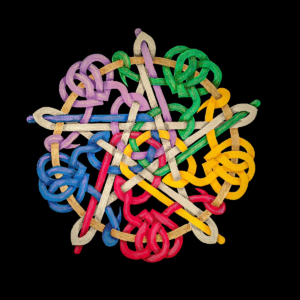The short answer: the ones that rub you wrong.
The longer answer: The Wicca you are going to learn about from books isn’t Traditional. At best, it’s Traditionally flavored. Usually, it’s guidance by an author with some training, maybe Traditional, on finding your own “Wiccish” path. Which is a perfectly valid path, despite being “not Traditional Wicca”.
I’ve been fortunate to meet many of the Pagan authors out there. For the most part, the person and the work are very different, particularly in cases where the person is a Traditional initiate. These people are knowingly producing material for people who very likely do not have a Traditional mentor to guide them, so they censor their offerings to maintain their oaths. It’s tricky business.
There are some wonderful exceptions, such as the delightful Margot Adler who wrote a journalistic report on the history and state of paganism in America, rather than to focus on the ins and outs of the Tradition she called home. She is very missed.
The books I read on Paganism and the Craft when I first started down this path weren’t glossy paperback how-tos. I found Wicca through the back door — academia. By the time I discovered the glossy how-tos, the information in them was old news to me, and I judged them on how useful they would be to share my knowledge with people who weren’t interested in reading 1100 page anthropological dissertations.
Anonymous said that discernment is a skill the seeker must learn, and I agree. Take the books you are told to avoid out at the library (if you are told to avoid them, they probably have several copies) and give them a thumbing through. You might find something you do like. You might feel it’s a load of hokey. Open your mind, but not so far that your brains fall out.
Link to the original question on Quora.
